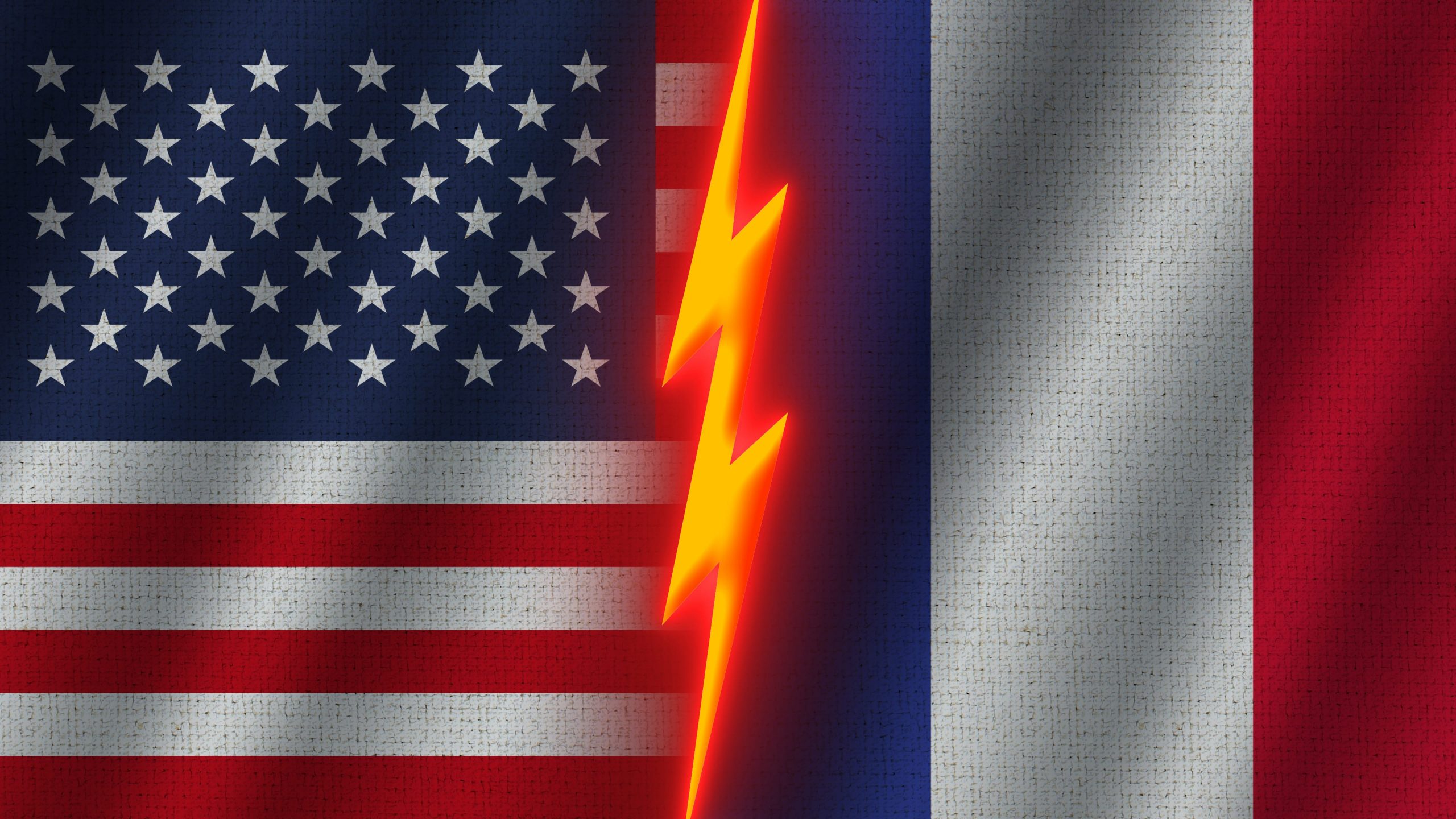The announcement of a defense partnership between the United States, the UK, and Australia, the AUKUS agreement, has resulted in a severe crisis in US-French relations, with consequences that may extend to the Arab world. The partnership entails sharing advanced military technologies with Australia, including signing an agreement to obtain nuclear-powered submarines from the US. Australia therefore announced that it had terminated a contract signed with France in 2016 to purchase French submarines, leading to outrage in France.
In response to these announcements, France recalled its ambassadors to the United States and Australia for consultations. French Foreign Minister Jean-Yves Le Drian said in a statement, “The cancellation of the Attack class submarine program binding Australia and France since 2016, and the announcement of a new partnership with the United States meant to launch studies on a possible future cooperation on nuclear-powered submarines, constitute unacceptable behavior between allies and partners, whose consequences directly affect the vision we have of our alliances, of our partnerships and of the importance of the Indo-Pacific for Europe.” These rising tensions between the US and France are likely to impact the Arab region, where both countries are actively engaged, in view of potentially increasing differences between their stances on regional issues.
Impact on the Arab region
The crisis between France and the United States is not the first of its kind in recent years; Paris has previously criticized Washington, especially during the era of former President Donald Trump. Additionally, France is keen to adopt policies distinct from Washington regarding certain issues, particularly in the Middle East. Consequently, the Australian submarine deal crisis is likely to have major impacts on regional issues, the most prominent of which are:
- Strengthening the European role in the region: Over the past years, France worked to formulate a European position separate from that of the US on regional issues, in support of French actions in the region. French President Emmanuel Macron believes that restoring France’s global standing is based largely on France taking the lead in European policy in the international arena, especially in crisis areas such as the Middle East. Through the collective European framework, France can enhance its international presence. This perhaps explains Macron’s repeated statements about concepts such as European sovereignty, and strategic independence in European foreign policy from other international parties. It can therefore be argued that Paris wishes to take advantage of the US withdrawal from the Middle East.
It is likely that the recent Australian submarine deal crisis will strengthen these French positions, especially in light of statements issued by European officials declaring the need for independent European positions and policies. For example, High Representative of the European Union for Foreign Affairs and Security Policy Josep Borrell declared on September 17th that the agreement between Australia, the United States, and the UK without consultation with the European Union highlights “the need to put European strategic autonomy high on the agenda.” - Possible complications in Lebanon: There have been joint efforts during the past few months between France and the United States in Lebanon, with both sides supporting new Prime Minister Najib Mikati. However, this does not negate the existence of differences, which may increase following the Australian crisis, especially with regard to dealing with Hezbollah and its political participation. While Washington classifies the Hezbollah, with its military and political wings, as a terrorist group, Paris has chosen to classify only the group’s military wing as a terrorist organization. This is relevant due to the nature of France’s role in Lebanon, which necessitates its dealing with the group as an important political actor on the Lebanese scene.
- Parallel moves on Iran: The Australian submarine crisis is likely to intensify French efforts, independently from Washington, regarding the Iranian nuclear issue. France did not follow the United States’ lead by withdrawing from the deal in 2018 and continued to uphold it along with some European countries. Indeed, it was France’s position that the American withdrawal from the agreement would negatively impact regional and international stability, perceiving that the policy of maximum pressure adopted by Washington towards Tehran did not achieve significant results. Accordingly, France found it more appropriate to employ negotiation tactics, diplomacy, and economic incentives in order to achieve the same goal that Washington seeks, which is to prevent Iran from acquiring a nuclear bomb.
It appears Paris is keen to open up to Tehran, as indicated by the September 5th phone call between President Emmanuel Macron and Iranian President Ibrahim Raisi, during which Macron emphasized developing and deepening relations between Iran and France, and the need to reconsider the relationship between the two countries at the economic, cultural, and regional levels. The call also touched on the Lebanese issue, with President Raisi pointing out that the Lebanese people are suffering today from economic sanctions that France can play a role in lifting, considering that “the efforts and assistance of Iran, France, and Hezbollah to form a strong government in Lebanon can support this.” - Strengthening Ankara’s position in Washington: It cannot be overlooked that the recent submarine crisis between the United States and France serves Turkish interests in one way or another. The escalation of tension between Paris and Washington could allow Ankara to strengthen its position in Washington, especially in light of recent efforts to affirm its strategic importance to Washington and NATO. Ankara is working to re-establish relations with them after the many differences that arose over the past years, the most important of which are Turkish policies in the eastern Mediterranean, as well as Turkey’s pursuit of the Russian S-400 missile system.
Should France and the United States fail to contain the present crisis, it is possible that Washington will view Ankara as a party through which it can balance French influence in the Middle East, pressuring Paris if it seeks to adopt policies that go against American interests and orientations. Ankara may exploit this to support its position in regional conflicts, especially in Syria and Libya. - Enhancing French military presence in the region: It is possible that the differences between Washington and Paris will push the latter to enhance its military and security presence in the region. France may also work to formulate collective European initiatives to support this trend. For example, President Macron participated in the Cooperation and Partnership summit in the Iraqi capital, Baghdad, on August 28, affirming that France will maintain its presence in Iraq to fight terrorism regardless of the US’ decisions.
In sum, the recent disputes between France and the United States is likely to exacerbate the crisis of confidence between the two parties, prompting Paris to take measures to respond to what it considers an American “insult”. The Arab region may become one of the arenas in which France formulates its response to the US, but this will remain dependent on a number of factors, the foremost of which is obtaining European support for French moves in the region, and the attitudes of other regional powers . The way Washington deals with the crisis, and its choice to escalate or de-escalate the situation with Paris will also be a factor.


